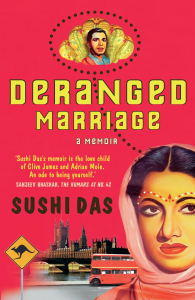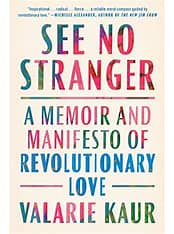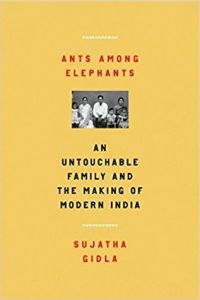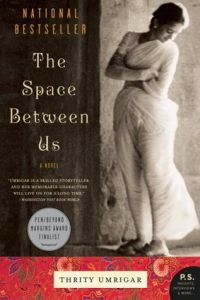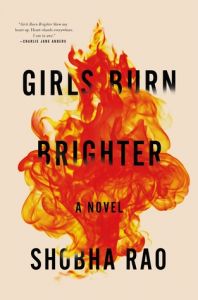Seeking Shelter in the familiar: Homeward-bound Diaspora Book Recommendations
Australia’s writing arena, like most of its other public spaces, is predominantly occupied by white men. Our Book Club Lead, Anika, researched how many Australian South-Asian female authors have been published in Australia. Spoiler alert: there weren’t many.
More recently, there’s been a noted increase of South-Asian women getting book deals, but more needs to be done to improve our active and long-term participation in this space.
We hope this list broadens your literary horizons, especially those of us in the Australian-South Asian community looking for inspiration, because as the saying goes ‘you can’t be, what you can’t see’. Too often find we ourselves seeking shelter in familiar voices centred far from home in United States and British diasporic narratives, but to open up a book and have it speak directly to you and integrate names of streets, metro lines, and local businesses you frequent is incomparable.
We hope this list leads you to books that offer you a sense of connection and belonging. We did our best to find books set in Australia, though there’s a few that aren’t that we felt still deserved to be included. We thought ‘homeward-bound’ captured the essence of this list as these books engage with a variety of transitionary life phases in the pursuit of finding acceptance, belonging and being at home in oneself, as well as, migration.
Deranged Marriage by Sushi Das
Sushi grew up in London in the ‘70s in a traditional Indian household. Her best-selling memoir explores identity, belonging, all things diaspora and shines a light on ‘one of the oldest traditions of Eastern culture’, arranged marriages. To avoid an arranged marriage of her own, Sushi immigrated to Australia where she still resides today as a Melbourne-based journalist.
We read this book as part of ASAC’s Book Club and it connected on a personal level with many of our members. We saw a bit of ourselves in Sushi’s story and her fierce and bold writing ignited a sense of confidence within us.
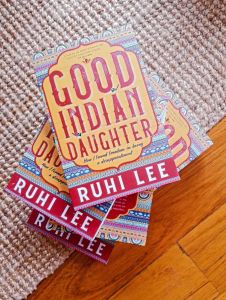
The Good Indian Daughter by Ruhi Lee (Sneha Lees)
Sneha is a Melbourne-based writer, born in India. Good Indian Daughter has us follow Sneha’s journey of growing up as an Indian child in Australia. Our Book Club members found Sneha’s story to be an emotional, liberating and healing reading experience and connected with Sneha’s experiences balancing different cultural identities. This memoir deals with cultural clashes, abuse, and personal revelations. Sneha’s vulnerability and emotionally honest recollections of past trauma threaded with her approachable and humorous writing style made this memoir a therapeutic read for immigrant daughters who grew up in Australia.
Sneha confronts and reconciles the ingrained struggles of juggling family expectations while trying to attain personal fulfilment. Our members were cheering for Sneha as she navigated through racist and sexist encounters before the birth of her first daughter, whom the memoir is dedicated to. Her strength and integrity made us reflect on our own values when navigating issues of gender, mental health and family obligations. Good Indian Daughter is filled with powerful messages for women about self-love and self-preservation.
The Permanent Resident by Roanna Gonsalves
Roanna arrived in Australia as an Indian international student. Her book is a collection of beautifully told stories, specifically focusing on the Goan Catholic diaspora. Despite the specificity of the stories, her writing speaks to all audiences. She delves into the hardships and intricacies of the migrant experience that filter across socio-economic boundaries. The way Roanna engages with the themes of cultural misunderstandings, domestic violence, parental grief, religion, and betrayal brings nuance and insight to the existential realities of the Australian-Indian international student experience.
See No Stranger by Valerie Kaur
Valerie has degrees from Yale, Stanford, and Harvard. Her family settled as Sikh farmers in California in 1913 and her activism was prompted when her family friend, Balbir Singh Sodhi, was the first person murdered as a hate crime soon after the events of 9/11. Her book, See No Stranger, is a memoir and manifesto exploring revolutionary love. Valarie Kaur is a powerhouse who has united thousands and works relentlessly in protecting human dignity.
This was the first book we chose to read for Book Club and its message resonated with all of us. Valarie’s writing offered a new perspective on how to see life and move through the world as more thoughtful and compassionate human beings.
Ants Among Elephants by Sujatha Gidla
Sujatha was the first Indian woman to be employed as a conductor on the New York subway. She writes about her uncles’ and mother’s stories, their upbringing in India where upheaval was commonplace after the British had left. Instead of writing a ‘rags-to-riches’ story about how her family rose through the ranks, overcame adversity, and her academic success, Sujatha chose to highlight the reality of her people and their daily struggles. It’s deeply upsetting and shameful how little the diaspora knows about the caste system, which so many of us benefit from. It’s a story that will stay with you.
The Space Between Us by Thrity Umrigar
As a Parsi child attending a Catholic school in a predominantly Hindu country, Thrity embraced her cosmopolitan childhood that would later serve her well as a writer. Born in Bombay, Thrity moved to the United States at 21 and is currently an English Professor. The Space Between Us follows a wealthy woman and her maid whose fates always seemed to rest in the hands of others and is never within their control. It’s a painfully honest and raw tale about their lived experiences. Through their triumphs and tragedies, the women maintain a bond that transcends class and race. The Space Between Us is wonderfully written, seamlessly making you connect with the real and flawed characters. You’ll find yourself struggling to put the book down – we know we did.
Girls Burn Brighter by Shobha Rao
Shobha moved to the United States when she was seven years old. Her novel is about two girls, Poornima and Savitha, from the village of Indravelli in Telangana, India. Savitha and Poornima are thrown into India’s underbelly and the cruel world of human trafficking. Shobha tackles the most urgent issues facing women today: domestic abuse, human trafficking, immigration, and feminism. This book is bittersweet and will take on a rollercoaster of emotions as you delve into Savitha and Poornima’s lives.
Inspired to read any of the books listed? We want to know! Feeling left out about not being at Book Club? We got you sorted, all you need to do is sign up here.


